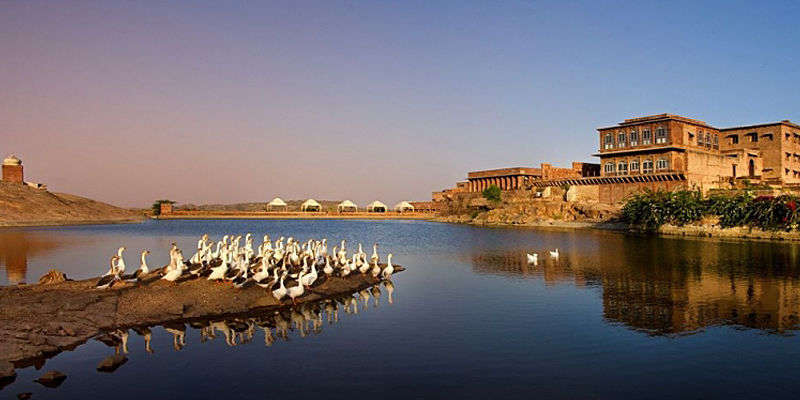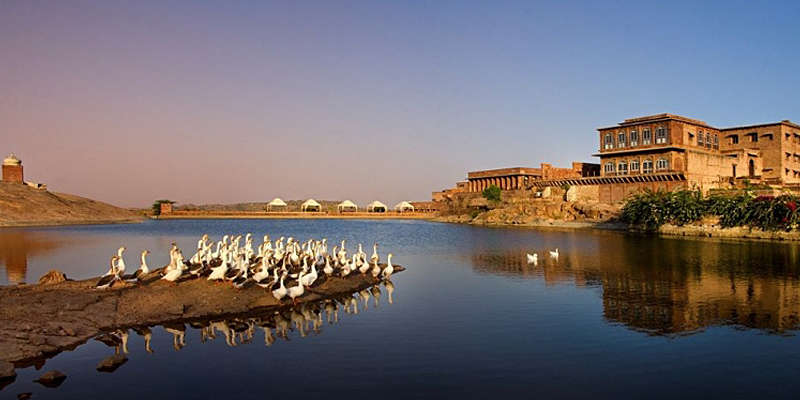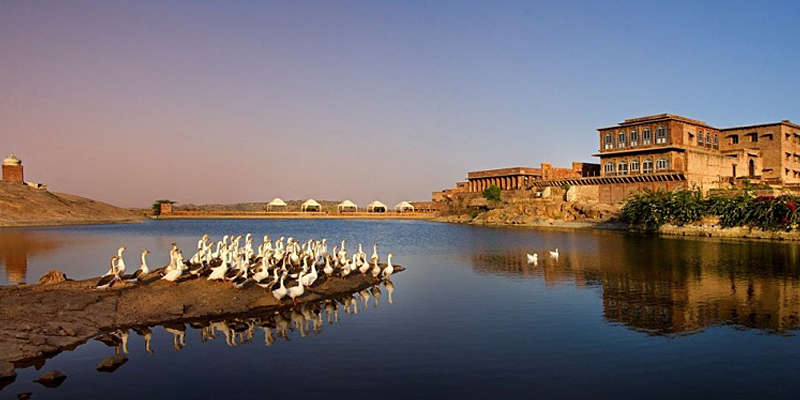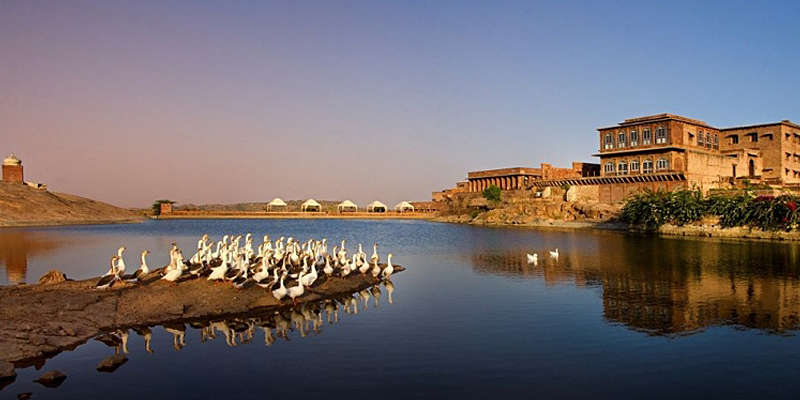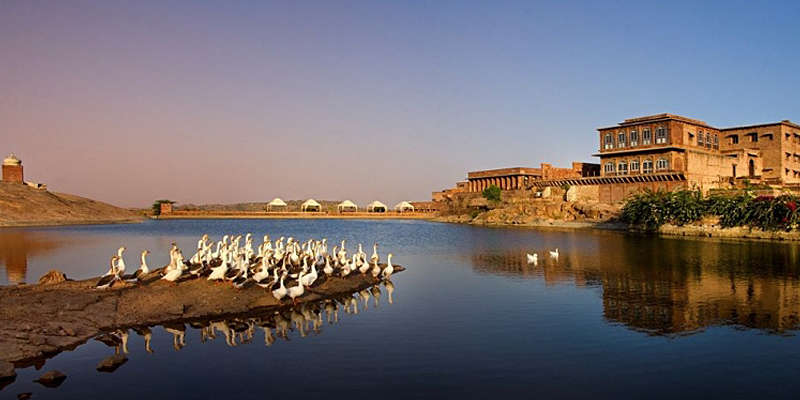The Marwar desert region in western Rajasthan, also known as the “Land of Death” in Sanskrit, is a magical place to visit. It is a place of extremes- from the dry sandy Thar Desert climate, to the colorful images of its people, dances, and songs. But no conversation about Marwar is complete without the unspoken question of water access. In the desert your question will be answered; you will see the ‘Paniharan’, women walking long distances in the heat carrying water on their head. For most, this is what the desert requires of life, walking long distances for water due to few water sources. This drudgery can, however, be alleviated with the restoration of traditional monsoon rainwater harvesting.
Bijolai Palace is an exemplary rainwater oasis within this desert climate. Nestled in between the Aravalli range of hills, just outside of Jodhpur, it is both closely in touch with nature and entirely self sufficient regarding its water needs. The hotel, part of a recently renovated area of the Royal Bijolai Summer Palace, has fresh water available throughout the year due to an ingenious water-conscious design. It is an excellent example of traditional rainwater harvesting; though built 150 years ago, is more in tune with the modern eco-movement than buildings of today. You will find the surrounding landscape, with its bold but not obscuring hills, a peaceful and pure match to the Bijolai Palace. Nearby the Hotel lies Kayalana Lake, a body of water that quenches Jodhpur City’s thirst, and is a beautiful hotspot for leisurely boat rides and couples. The Palace design is sure to amaze you, as it exhibits the meticulous planning of the old rulers and a bygone era when people knew they would either live or die depending on the rainwater management, when people knew their lives depended on the quality of rainwater management.

